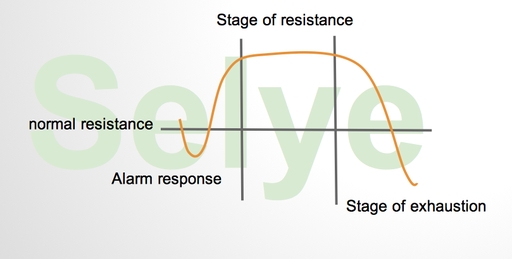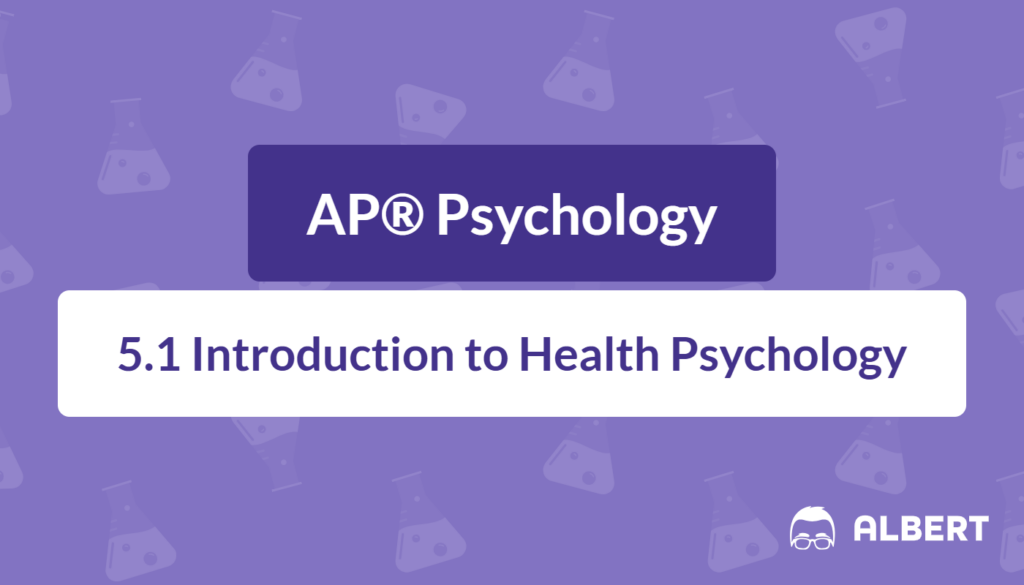What We Review
Health psychology is a field that explores how thoughts, emotions, and behaviors influence physical well-being. It highlights the mind-body connection by revealing how mental states affect one’s risk for disease, overall health, and daily functioning. Therefore, studying this area helps people develop healthier habits, manage stress, and cultivate mental resilience.
High school students benefit greatly from understanding these concepts. They face academic pressures, social changes, and family expectations, all of which can affect health and happiness. This article explains how health psychology addresses stress, physical health, and coping strategies.
The Role of Health Psychology
Health psychology examines the link between a person’s mental processes, their actions, and their physical health. Experts in this field look at how behaviors like smoking, exercising, and getting enough sleep impact well-being. They also consider how people’s beliefs, motivations, and emotions can lead to better or worse health outcomes, highlighting the importance of the mind-body connection.
- Behavior and Wellness: Unhealthy behaviors (like a poor diet) can set the stage for issues such as heart disease. On the other hand, healthy habits (like regular exercise) often improve mood and enhance wellness.
- Mental Processes: Thoughts and feelings play a vital role in health. High levels of anxiety or depression might weaken the immune system, making it harder to fight illness.
- Health Outcomes: When mental health is prioritized, individuals often recover faster from illness, experience less severe symptoms, and enjoy better overall health.
Example: Smoking and Its Psychological Implications
Imagine a student named Alex, who starts smoking to cope with stress. Health psychology would examine:
- Why is Alex turning to cigarettes?
- How do Alex’s beliefs about smoking influence this behavior (e.g., thinking it relieves tension)?
- How can understanding these factors help Alex quit and find healthier coping strategies?
Practice Problem: Identifying Behavioral Influences
Scenario: Janine often stays up late on her phone and drinks multiple sugary drinks to stay awake. She struggles to concentrate in class and feels tired all day.
Step-by-Step Solution:
- Identify the Unhealthy Behavior: Going to bed late and consuming excessive sugar.
- Recognize the Mental Process: Janine believes sugary drinks keep her alert, but they spike and crash her energy.
- Relate to Physical Health: Lack of sleep and poor nutrition can weaken her immune system and affect her mood.
- Suggest a Health Psychology Perspective: Encouraging Janine to replace long phone use with reading or relaxing music, then limiting sugary drink intake.
- Outcome: Better sleep habits can boost concentration and improve overall wellness.
Understanding Stress and Its Effects
Stress is a physical and emotional reaction to challenges or pressures. It can arise from school deadlines, social conflicts, or sudden life changes. However, stress can be both helpful (eustress) and harmful (distress).
- Stress and Physical Health: Prolonged stress weakens the immune system and heightens susceptibility to disorders such as hypertension, headaches, and immune suppression.
- Eustress vs. Distress:
- Eustress motivates individuals, sparking productivity and creativity.
- Distress causes tension, worry, and sometimes leads to illness.
- Daily Hassles Can Build Up: Small tasks like forgetting homework or experiencing traffic each morning may seem minor, yet they pile up. Over time, these hassles can create chronic stress.
Example: Daily Hassles Leading to Cumulative Stress
Consider Sharon, who repeatedly experiences small annoyances: missing the bus, losing assignments, and dealing with noisy neighbors at night. Although each hassle is minor, they accumulate and cause her ongoing tension. As Sharon’s stress grows, she might experience headaches and fatigue.
Practice Problem: Recognizing Eustress vs. Distress
Scenario: Luis feels nervous before a big sports competition. The nerves actually make him more alert and help him perform better during the game.
Step-by-Step Solution:
- Identify the Stressor: The sports competition.
- Determine Type of Stress: Luis experiences excitement and better focus—this points to eustress.
- Observe the Outcome: The enhanced alertness leads to peak performance, indicating a positive effect of stress.
- Compare with Distress: In a different scenario, intense nerves might overwhelm Luis, causing him to panic or freeze.
- Conclusion: Recognizing the type of stress allows Luis to channel it productively.
Reactions to Stress
Reactions to stress can take different forms. Two well-known theories in health psychology are the General Adaptation Syndrome (GAS) and the Tend-and-Befriend Theory.
General Adaptation Syndrome (GAS)
Researcher Hans Selye proposed this three-stage stress model:
- Alarm: The body notices the stressor and prepares for a fight-or-flight response. Adrenaline increases, heart rate spikes, and focus heightens.
- Resistance: Individuals actively resist the stressor. The body tries to adapt while staying on alert.
- Exhaustion: If the stress continues for too long, the body’s energy is depleted, increasing vulnerability to illness.

Tend-and-Befriend Theory
Some people, particularly women, respond to stress by nurturing themselves or children (tending) and seeking close connections (befriending). This pattern involves relying on interpersonal support rather than confronting or fleeing from a threat.
Example: A Personal Situation Illustrating the GAS Model
A high school student, Mia, learns about a big final exam scheduled for next week.
- Alarm: She feels anxious, her heart races, and she realizes she must study.
- Resistance: She sets aside time each day to review notes, tries to stay calm, and keeps her energy up.
- Exhaustion: If Mia crams every night without rest, she might become exhausted and susceptible to colds or headaches.
Practice Problem: Analyzing GAS Stages
Scenario: Jordan is organizing a large school festival over several weeks, facing various challenges.
Step-by-Step Solution:
- Alarm: Jordan hears about a staffing shortage and immediately feels anxious.
- Resistance: Jordan delegates tasks, gathers volunteers, and attempts to tackle problems systematically.
- Exhaustion: If there is no break or extra help, Jordan might feel drained, leading to trouble sleeping and increased illness risk.
- Conclusion: Recognizing the stages allows Jordan to plan rest periods before reaching exhaustion.
Coping Mechanisms for Stress
Coping mechanisms are ways people deal with stress. These strategies help them stay balanced and prevent serious mental or physical issues.
Problem-Focused Coping
This approach targets the stressor directly. It involves analyzing the situation and seeking actionable solutions. For instance, a student who struggles with time management might use a planner or schedule targeted study sessions.
Emotion-Focused Coping
This strategy manages emotional responses to stress. It might include deep breathing, meditation, or speaking with a supportive friend. Visualizing success and focusing on positive thoughts are also part of this approach.
Example: Implementing Deep Breathing Techniques During a Stressful Exam
Picture a student, Samuel, who faces a pop quiz in math class. Samuel practices deep breathing to calm his nerves:
- He inhales slowly for a count of four.
- He holds his breath for another count of four.
- He exhales gently, focusing on releasing tension.
By doing so, his heart rate and anxiety begin to decrease, letting him think more clearly.
Practice Problem: Deciding on a Coping Strategy
Scenario: Naomi is overwhelmed by group projects, sports practice, and a part-time job.
Step-by-Step Solution:
- Identify Source of Stress: Naomi’s busy schedule.
- Choose Coping Strategy: She lists her tasks in a planner (problem-focused) and, when feeling tense, uses short mindfulness breaks (emotion-focused).
- Apply Methods: Naomi checks off completed tasks to stay organized. She dedicates five minutes daily to relaxing music.
- Evaluate Outcome: Naomi notices lower stress levels, better time management, and improved mood.
Conclusion
Health psychology reveals that mental and emotional factors can strongly shape physical health, highlighting the importance of the mind-body connection. By understanding stress, individuals can recognize how daily hassles and major life events affect well-being. Further, by learning the General Adaptation Syndrome or Tend-and-Befriend Theory, it becomes clearer why some people try to solve problems directly while others seek support networks.
Coping with stress effectively can boost health and resilience. Therefore, developing skills such as time management, self-reflection, and relaxation techniques can pay off by reducing tension-related illnesses. Keeping an eye on both mental and physical health promotes a balanced, fulfilling life.
Quick Reference Chart
Below is a chart summarizing key vocabulary:
| Term | Definition or Key Feature |
| Health Psychology | Field studying how mental processes and behaviors relate to physical health and illness. |
| Mind-Body Connection | Concept describing how thoughts and emotions can affect bodily functions and overall health. |
| Stress | A physical and emotional response to challenges, changes, and pressures. |
| Eustress | Positive stress that can motivate and improve performance. |
| Distress | Negative stress leading to worry, anxiety, and possible health problems. |
| General Adaptation Syndrome | Three-stage model (Alarm, Resistance, Exhaustion) describing how the body responds to chronic stress. |
| Tend-and-Befriend Theory | Stress response pattern, common in women, involving nurturing (tend) and seeking social support (befriend). |
| Problem-Focused Coping | Strategy focusing on solving the source of stress by making changes or taking direct action. |
| Emotion-Focused Coping | Technique aimed at managing emotions tied to stressors, such as deep breathing and relaxation exercises. |
| Stress and Physical Health | Strong link showing that chronic stress can lead to illnesses like hypertension and immune suppression. |
| Stress Coping Theories | Models explaining how individuals manage stress through various methods, including problem-focused and emotion-focused approaches. |
Understanding these terms can help students grasp the essential ideas in health psychology. With that knowledge, taking practical steps to stay calm, solve problems, or seek emotional support becomes easier. This, in turn, leads to better health outcomes and a more positive view of everyday challenges.
Sharpen Your Skills for AP® Psychology
Are you preparing for the AP® Psychology test? We’ve got you covered! Try our review articles designed to help you confidently tackle real-world AP® Psychology problems. You’ll find everything you need to succeed, from quick tips to detailed strategies. Start exploring now!
- Positive Psychology Definition: AP® Psychology Review
- Psychological Evaluation: AP® Psychology Review
- Defining Psychological Disorders: AP® Psychology Review
Need help preparing for your AP® Psychology exam?
Albert has hundreds of AP® Psychology practice questions, free response, and full-length practice tests to try out.








